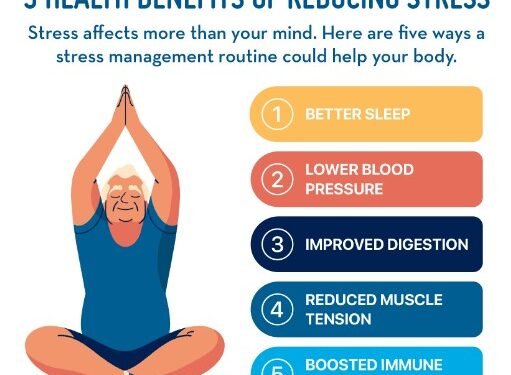Contents
- 1 Improve Sleep, Remove Stress
- 2 Fix a Regular Time to Sleep
- 2.1 Related posts
- 2.2 Naturopathy: Harnessing the Body’s Natural Healing Power
- 2.3 Comprehensive Alternative Cancer Treatments at VeritaLife: A Personalized Approach
- 2.4 Unveiling the Potential of Chelation Therapy: A Comprehensive Overview
- 2.5 Alternative Cancer Treatments: A Comprehensive Overview
- 2.6 Why You Should Try Stem Cell Therapy
- 2.7 Exercise With Oxygen Therapy (EWOT): A Revolutionary Approach to Health Enhancement
- 2.8 Top Tips for a Balanced Lifestyle
- 3 Reduce Screen time Before Bed
- 4 Create a Comfortable Environment
- 5 Do Meditation to Reduce Stress
- 6 Avoid Heavy Meals before Bedtime
- 7 Limit Caffeine and Alcohol Consumption
- 8 Avoid Exercising at Night
- 9 Take a Warm Bath
- 10 Listen to Relaxing Music
- 11 Conclusion
Improve Sleep, Remove Stress
Today’s fast-paced and busy lifestyle has had a profound effect on both the quality of sleep and mental peace. Most people are struggling with the problems of stress and insomnia. Good sleep is essential for our body and mind, as it not only refreshes us physically but also makes us mentally stable and strong. Let us know about some measures that can improve your sleep and drive away stress.
Fix a Regular Time to Sleep
The most important way to improve sleep is to set a regular time to sleep and wake up. No matter how busy your day is, try to sleep and wake up at the same time every day. This keeps your body’s biological clock stable and the sleep cycle is organized. Regular sleep cycle also reduces stress, which keeps you mentally prepared for the next day.
Reduce Screen time Before Bed
Nowadays people spend time on their smartphones, tablets, or laptops before sleeping. The blue light emitted from these electronic devices keeps our brain active and disrupts the production of melatonin (sleep-inducing hormone). This delays sleep and also increases stress. Stop using screens at least 30 minutes before bedtime and try reading a book or meditating instead.
Create a Comfortable Environment
A comfortable and peaceful environment is very important for good sleep. Your bedroom should be quiet, cool, and dark. The bed and pillows should also be comfortable so that your sleep is deep and peaceful. If your bedroom is noisy, you can use a white noise machine or ear plugs. A comfortable environment not only improves sleep but also reduces stress.
Do Meditation to Reduce Stress
Stress is the biggest enemy of sleep. Meditation is a powerful tool for stress reduction, and practicing it for just 10-15 minutes before bed can help soothe the mind and promote relaxation. Take deep breaths and focus. This technique calms your nerves and prepares your brain for sleep. Regular meditation will reduce your stress levels and improve sleep quality.
Avoid Heavy Meals before Bedtime
Eating a heavy meal just before bedtime can disrupt sleep. It puts pressure on your digestive system and interferes with sleep. If you feel hungry before bedtime, have a light and easily digestible snack, such as milk, banana, or nuts. This will keep you full and help you sleep peacefully.
Limit Caffeine and Alcohol Consumption
Both caffeine and alcohol can affect your sleep. Caffeine, which is found in tea, coffee, and some soft drinks, stimulates the brain and interferes with sleep. Avoid consuming caffeine in the evening. Alcohol also disrupts the sleep cycle and disturbs deep sleep. If you want to improve sleep quality, limit your intake.
Avoid Exercising at Night
Exercise is beneficial for the body, but if you do it just before bedtime, it can affect your sleep. Exercise stimulates the brain and body, leading to difficulty falling asleep. Try to exercise in the morning or during the daytime. If you prefer to exercise in the evening, finish it at least 2-3 hours before bedtime.
Take a Warm Bath
Taking a warm bath before bedtime helps relax the body and mind. The calmness of warm water relaxes your nerves and relieves stress. This causes the body temperature to gradually decrease, which sends sleep signals to the brain. This is an easy and effective way to improve sleep quality.
Listen to Relaxing Music
Listening to relaxing and slow music can help calm the brain and reduce stress. Listen to slow music for a few minutes before going to bed, such as nature sounds, or meditation music. It calms the brain and helps you get a restful sleep.
Conclusion
Sleep and stress are closely related. Good and deep sleep not only reduces stress but also improves your mental and physical health. Introduce simple lifestyle changes like setting a fixed bedtime, limiting screen use, and crafting a peaceful environment to enhance your sleep quality.
By adopting these simple measures, you can improve your sleep quality and drive away stress. Remember, good sleep is essential for a healthy life.
Read more also:- 7 Habits to Avoid Right After Eating for Better Digestion

















